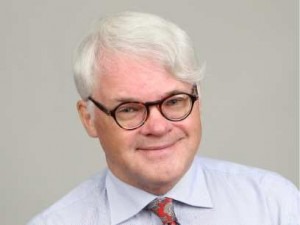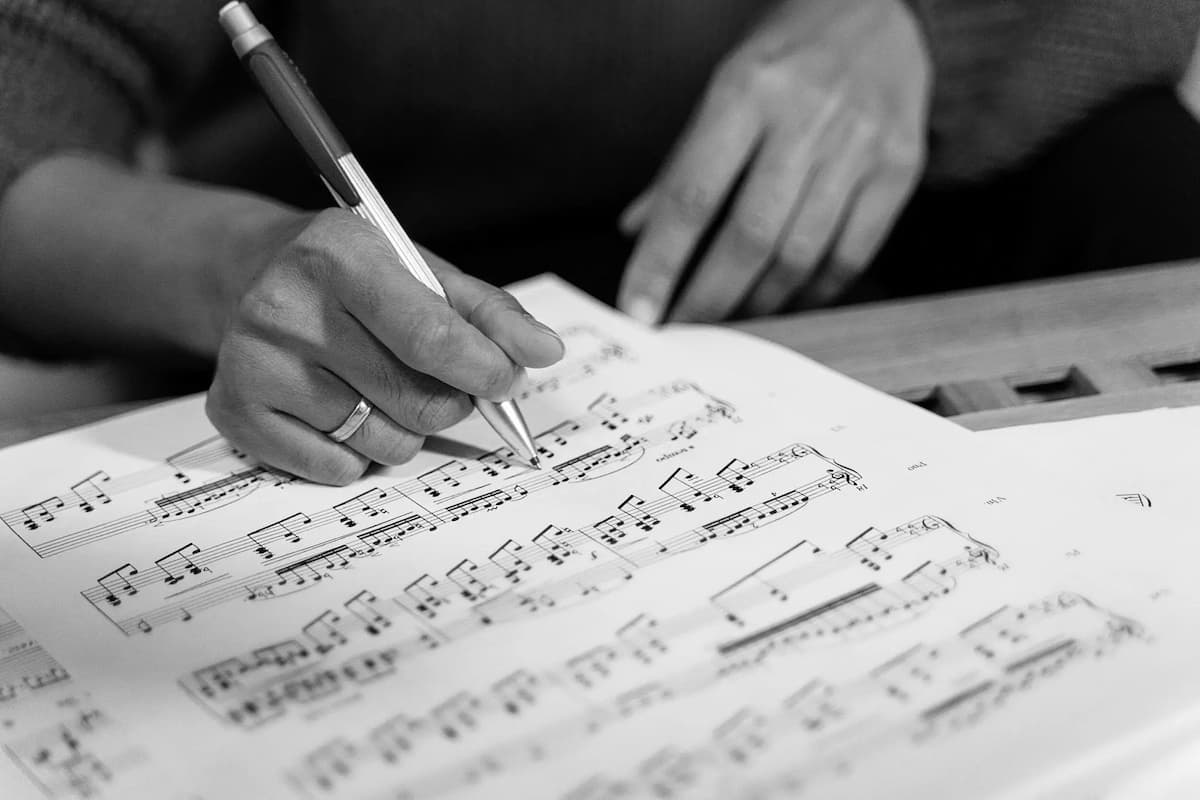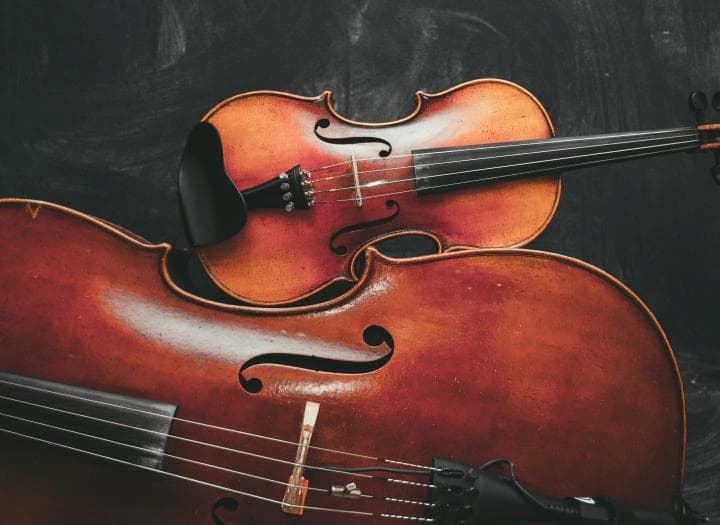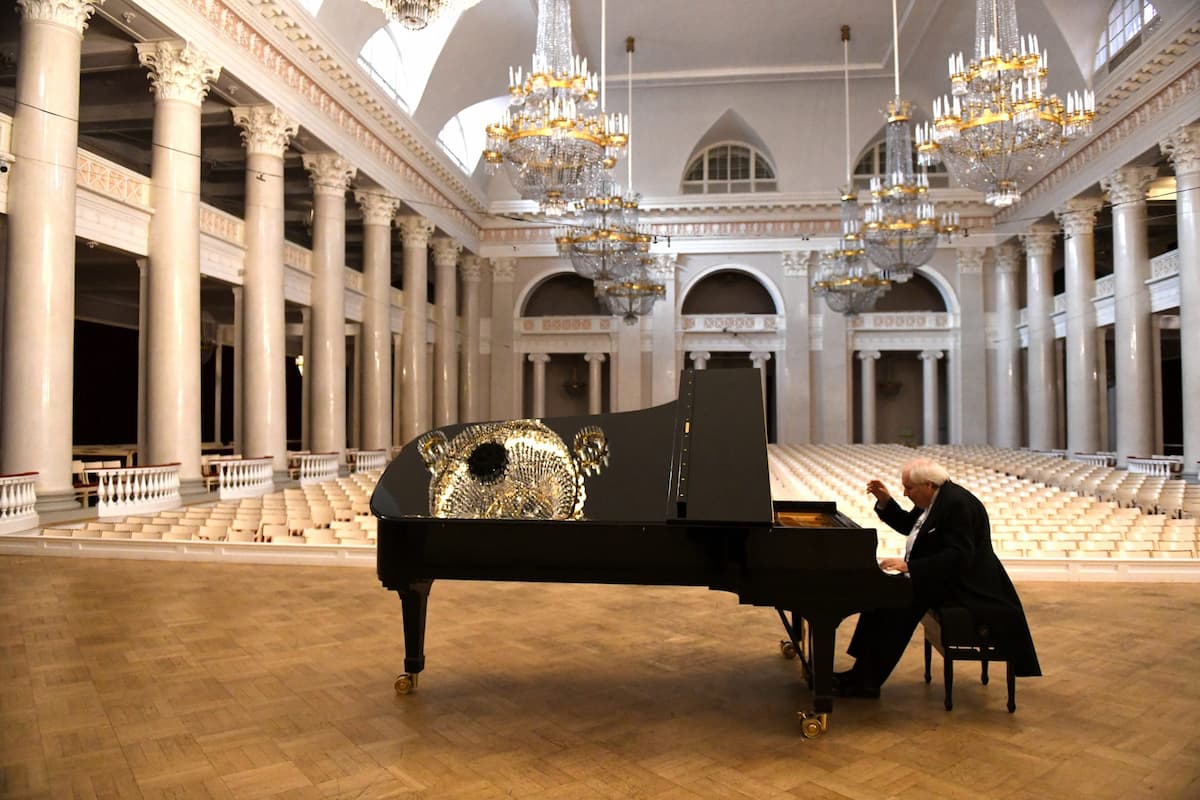 Growing up in Canada Arthur Kaptainis was held in awe in the music world. He has been the music critic of The Montreal Gazette since 1986 and served on the Gazette editorial board from 1991 to 1999 and 2003 to 2006, writing on local, national and international affairs. His arts criticism has appeared in Opera Canada, Opera U.K., the New York Times, Musical America, and the American Record Guide. Kaptainis has also written about subjects as diverse as nuclear energy, avian flu and Star Trek: The Next Generation. He was the author of a weekly general-interest quiz for The Gazette from 1988 to 2004 and has also been a CBC Radio host.
Growing up in Canada Arthur Kaptainis was held in awe in the music world. He has been the music critic of The Montreal Gazette since 1986 and served on the Gazette editorial board from 1991 to 1999 and 2003 to 2006, writing on local, national and international affairs. His arts criticism has appeared in Opera Canada, Opera U.K., the New York Times, Musical America, and the American Record Guide. Kaptainis has also written about subjects as diverse as nuclear energy, avian flu and Star Trek: The Next Generation. He was the author of a weekly general-interest quiz for The Gazette from 1988 to 2004 and has also been a CBC Radio host.
How did you become a music writer?
Writing about music was a natural confluence of my teenage interests in music and literature. Perhaps my special fascination—how interpretations of great works differ, in live performances and on record—was given a jolt.
As for my background, I started piano lessons around age 13. Too late, of course, but even had I started earlier I don’t think I would have had the talent or patience to become a performer. I did my Czerny and Hanon exercises but my activity at the piano would be better described as devouring repertoire, not really learning it responsibly. I received my harmony and counterpoint diplomas at the Royal Conservatory of Music. Taking this training for granted at the time, it has certainly stood me in good stead when I later pursued an MA in musicology. I made many musical friends in high school, which had a music program.
But I think it is important to stress that “background” and “training” in the sense of formal credentials are usually red herrings where practical music criticism is concerned. A scholar can have a Ph.D. in Palestrina and be completely ignorant of the Mozart Requiem. Critics, even if they have their personal preferences, need to be broad listeners. They should be writers who can communicate well on deadline. A university degree confers no such ability.
How do you prepare for a performance review?
This depends on the music. If we’re talking about Tchaikovsky’s Piano Concerto No. 1—not at all. But when I flew to Budapest last year to see a production of Carl Goldmark’s Die Königin von Saba, I went through the score and libretto thoroughly. Obviously there are many works that reside between those extremes of familiarity and obscurity. I recall doing some homework on Handel’s Theodora before a performance in Montreal, because I was writing an advance piece about it. I would study a Bartok String Quartet. Even though I have heard the quartets many times, I can’t say that I “know” them the way I know 19th-century quartets.
Critics are often in the position of hearing dense contemporary scores with nothing but program notes as prior guidance. Sometimes it is thought that such works do not make their proper impression on first hearing but I am not so sure. There is always something about a substantial piece that asserts itself on first hearing. Indeed, “I’d like to hear that again,” indicates a good piece of music to me. For standard repertoire, I think a critic should know the piece but not arrive with an agenda. You owe it to the performer to have an open mind.
What inspired you and continues to inspire you in the music world? —New productions, collaborations, innovative efforts, or new light shed on old masters?
There are a few ways of answering that question. One is to draw attention to the high performance standards that inform the classical scene on every level. People become musicians for the love of music. They work hard. Good faith abounds and rarely—almost never, really—do I hear a performance that is seriously under-rehearsed or presented in what I would call bad faith.
And because the music scene is based on a canon of masterpieces, there is built-in ‘quality control’. Every performance of a Beethoven symphony is organic and communicates the marvels of the score. Of course, some performances are less successful than others. But it seems to me that attending a classical concert is almost always a positive experience.
It is not so in other arts. Theatre and dance are hit and miss. Concert music has been substantially spared the descent into violence and degradation we see in the other arts. The exception, unfortunately, is opera, which I believe has been seized by stage directors with no knowledge of (or even sympathy for) the art form. But this is subject worth another interview.
What would you say is the need or role for music criticism?
A concert is a significant event. Like all significant events, it needs to be documented. If we can do without a review of a Montreal Symphony Orchestra performance of Britten’s War Requiem—then why bother covering a vote of the National Assembly in Quebec City or the courtroom? With or without news coverage, the motion passes and the criminal is sentenced.
Concert music and opera are living and evolving phenomena. They are also very popular, despite myths to the contrary. Their history needs to be written. Without a written witness to the performance this history is absent. Think of the reports on the most important premiere of all time—Beethoven’s Ninth Symphony. We know there was spontaneous applause for the timpani during the Scherzo, but not exactly where and almost everything we know about the structure of public theatres in Shakespeare’s time, is based on a copy of a drawing by a Dutch tourist. What a difference one thoughtful critic attending one performance would have made!
Good criticism is full of life if it accurately reflects the content of a concert. Pianist, Anton Kuerti many years ago commented, “something exciting is going on in a concert hall” and it is the obligation of the critic to make that clear. I have never forgotten his admonition!
How do you view the interaction of music criticism and journalism or other music writing?
There should be more. The academics are relatively isolated. Probably some of them regard critics as ink-stained wretches and not worth talking to, but the common ground is obvious. Do physics professors despise science journalists? I doubt it.
When you review recordings, is your approach different than a live performance?
It seems to me the same general standards apply, although it cannot be denied that the visual element of a live performance has some bearing on its effect. But even here the effect is primarily aural. If I describe a conductor’s podium style, it is with the intent of clarifying its relation to the sounds the orchestra makes.
It is true that we have a higher tolerance for “clams” (missed notes) or intonation problems in the concert hall than on record. I would say that live performance is more conducive to concentration, which is why Glenn Gould’s prophecies of the death of the concert hall experience have not come to pass. Still, I think in general that listeners enjoy recordings and live performances for mostly the same reasons.
What was the most memorable concert that you attended? Who are some of your favorite artists or performers?
It would be hard to bring the “most memorable” count down to double digits, let alone one. There was a performance of Mozart’s Idomeneo under James Levine at the Met in the 1990s that seemed to have it all (including Cheryl Studer as Electra). Maureen Forrester was in similar form as Klytemnestra for the Canadian Opera Company in 1983. Over the decades I recall being sent into orbit by Ivo Pogorelich, Jorge Bolet, Aldo Ciccolini and (more recently) Lang Lang.
James Levine conducting The Metropolitan Opera Orchestra : Mozart’s Idomeneo
My concept of a favorite performer is based more on a body of work. I never heard Sviatoslav Richter live but would count him a favorite. Ditto Otto Klemperer – his recording of the Mendelssohn Hebrides Overture with the Philharmonia Orchestra is only one I need. And the Montreal Symphony Orchestra under Charles Dutoit was not famous for nothing. But really, this is madness. You cannot hear thousands of concerts and settle on one as a favorite.
Mendelssohn – The Hebrides Overture – Philharmonia / Klemperer
With the growing number of newspapers that no longer have music critics, what do you see is the future of print criticism and writing about music?
Criticism is rapidly moving from newspapers to dedicated music websites. In one way this obviously is not a good thing. It means that a general reader flipping through the newspaper (or even a newspaper’s website) will not find a review of the Toronto Symphony, or the opera, or the Emerson String Quartet and read it out of general interest. Music website readers are already involved in the art form, although there may be some incidental dissemination of classical music through Facebook.
The consequences for musical culture are disastrous. Criticism is central to public discussion about music. And without discussion, how can a culture thrive?
What music do you listen to for pleasure?
There is no doubt that my live listening has veered mostly to symphony and opera. Perhaps this is why I tend to listen to smaller-scale music at home: I get the blockbusters at work. The last big piece I heard live was, indeed, Strauss An Alpine Symphony. Today I was listening to Bruckner’s motets, which are mostly somber and short. I am a lifelong Beethovenian and am certainly always ready for a piano sonata. At a party some weeks ago I got the greatest pleasure from hearing two pianists I know sight-read Brahms’s Op. 39 Waltzes in their four-hands incarnation. But I do listen to performances and recordings of all types.
What advice you would give to someone starting out?
Support your opinion. Information without opinion is dull. Opinion without information is useless. Also—as obvious as this seems—tell it like you heard it. It is still common to see a review that reflects advance publicity better than the actual performance.
Emanuel Ax and Anna Polonsky Brahms Waltzes op 39



